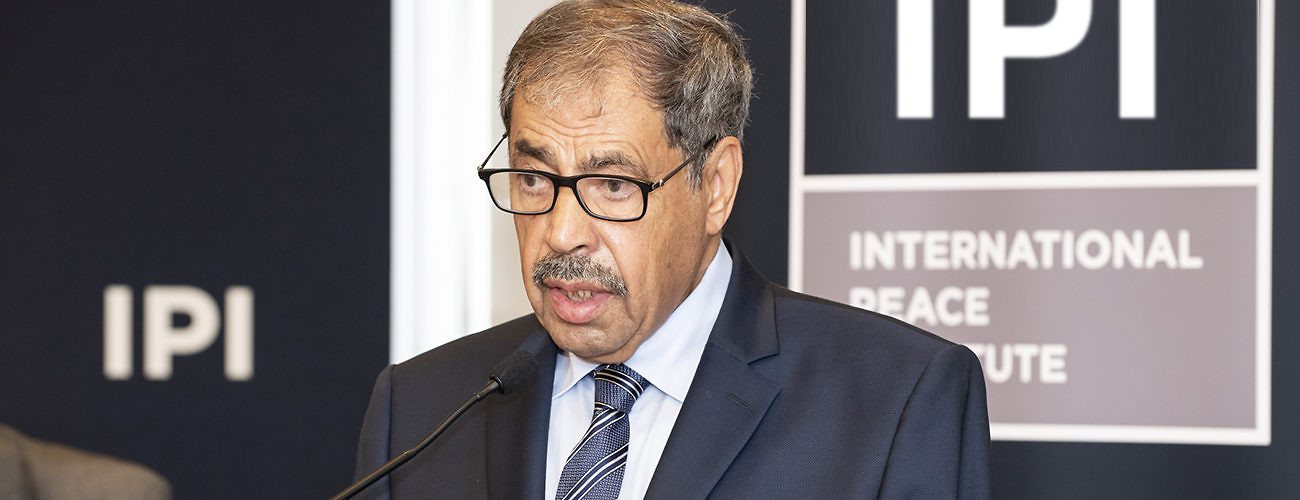“Nowadays, more than ever before, for the survival of humanity, there lies the need to transform our perception of peace from possibility to necessity,” said Abdul Aziz Saud Al-Babtain, a Kuwaiti poet and activist who is director and Founder of the Al-Babtain Foundation.
Speaking to a lunchtime side event of the annual United Nations High-Level Forum on the Culture of Peace, he said that too often “the question of what causes war and how do we avoid it comes after the disaster of war has already struck; it’s a postwar question.” Instead, he said, “to build our ultimate goal of how to sustain peace, we think that developing peaceful societies is the ultimate solution.”
To that end, he said, the foundation was developing an “action plan” defining the concept of the culture of peace and assessing the mechanisms of achieving and implementing the goal. Within this framework, he explained, specialists were working on the practicalities of the plan and teaching the culture of peace through the creation of 17 educational manuals to be presented to guests at an International Court of Justice gathering of political, social, and cultural actors in The Hague on June 13, 2019.
In a panel discussion that followed Mr. Al-Babtain’s remarks, Karen Pierce, the Permanent Representative of the United Kingdom to the UN, said, “I welcome this emphasis on how we can actually embed a culture.” She suggested that key elements to developing such action were inclusivity, accountability, strict adherence to the rule of law and observation of human rights, including economic, political and cultural ones. “And sticking with it,” she added, “be prepared for it to take a long time, we are too short term, and we don’t put the effort in to make these efforts long term and sustain them.”
Tareq Md. Ariful Islam, the Deputy Permanent Representative of Bangladesh, also argued for persistence. “Sustaining peace is not designed to be a mere theoretical construct; it is, in fact, aimed at making demonstrable changes on the ground that can be monitored and measured over time,” he said.
Kevin Rudd, the IPI chair and moderator of the panel, pointed out that the changes being proposed were “attitudinal as well as institutional,” and Fabrizio Hochschild, UN Assistant Secretary-General for Strategic Coordination, elaborated on the point. “Too often in the aftermath of conflict,” he said, “we think of peacebuilding in terms of mediation, physical reconstruction of assets destroyed in the conflict, and we don’t think enough about the intangibles without which conflict will inevitably return, like the reconstruction of social cohesion and trust between citizens and the state.”
An imperative starting point, he said, was ending the “dehumanization of the ‘other.’”
He explained, “The first victim of conflict is the perception of the enemy, the ‘other,’ as inhuman, and until the ‘other’ is recognized, there are no chances of truth taking root, which is necessary for the resolution of conflict.”








